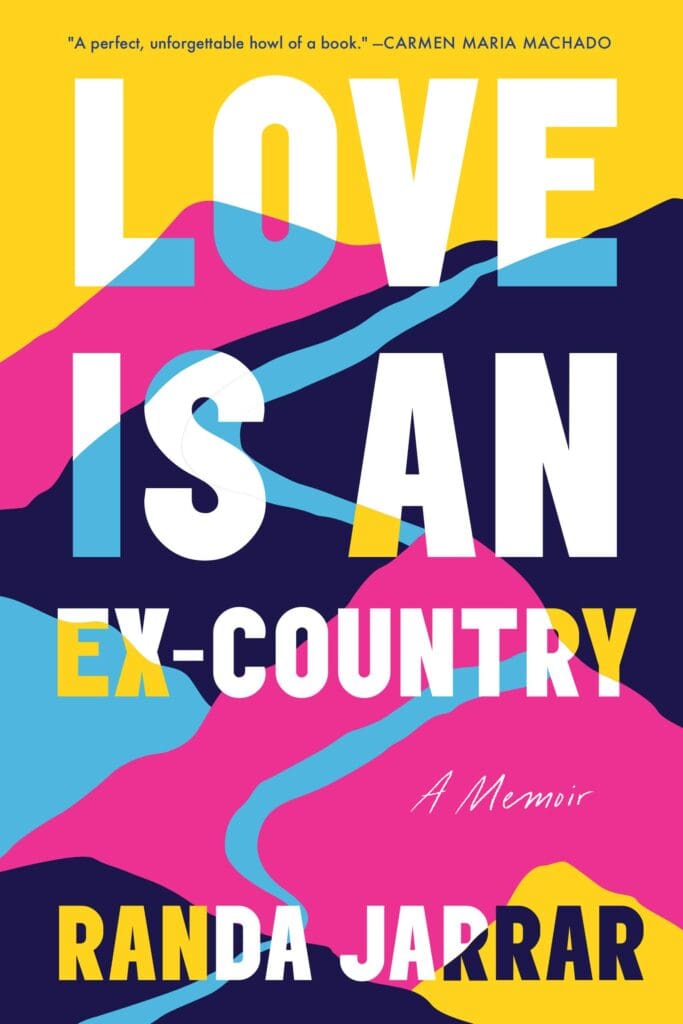When we think of the American road trip novel, it’s easy to recall Jack Kerouac’s On the Road and the manic adventures of Sal Paradise and Dean Moriarty, traipsing from New York to San Francisco as carefree and self-destructive as white men in the Fifties were allowed to be. That was America for them. But Randa Jarrar’s road trip memoir, Love Is an Ex-Country (240 pages; Catapult), demands a re-landscaping of America for a queer Arab American woman. The road trip is not a linear starting point-to-destination; it’s an evolving struggle to claim and inhabit a home in a place that is antagonistic to people like her. “Please don’t act welcoming,” Jarrar writes. “This is my country.”
She begins her road trip after reading a newspaper account of the larger-than-life Egyptian dancer and actress Tahia Carioca and her cross-country trip in 1946. Jarrar forges a kinship with Carioca because, “like her, I was fond of dancing, light-skinned and privileged, libidinous, divorced more than once, and ready to motor.” From the beginning, we plunge into Jarrar’s punchy colloquialism and narrative prowess. There is a cheeky playfulness to her writing, a brash humor that forces us to bear witness to the people and experiences that are erased, like a “magic trick.”
Yet this is not a jovial narrative. At a rest stop in Flagstaff, Arizona, Jarrar details her harrowing confrontation with a racist truck driver while washing her hands in a bathroom sink. We take a detour at a Texas thrift store where she and her friends buy three Confederate flags and burn them in a field. And we make frequent stops to nurse the bruises of abusers. Jarrar balances this pain and trauma with moments of beauty and pleasure. She finds refuge in the arms of new lovers, where her sex life is pronounced by a self-assuredness that is rare to read in nonfiction. She reimagines her childhood attraction to Thumbelina and Tinker Bell as her sexual awakening; convincingly interpreting these tiny fairytale characters as “queer, visual representations of clitorises.”
Although the container for Jarrar’s memoir is her road trip, she intersperses her story with experiences from a Tunisian book fair, her childhood in Kuwait, and from the Arab Room in the Tel Aviv Ben Gurion Airport. The American excursion is a transnational one, and for Jarrar, a Palestinian refugee, the question of country is omnipresent.
If a road trip narrative relates a definitive personal transformation that occurs somewhere between where we start and where we end up, Love Is an Ex-Country defies that expectation. Jarrar’s origins are split across continents, and the homes she occupies turn into places she must escape. “I think about how I can never tell anyone what my hometown is,” she writes, “because I don’t have a hometown. I think about how I’m not from anywhere.” These irresolutions and contradictions are perhaps what makes this complex, non-chronological memoir feel complete.
Our histories are not quite past, but integral to the people we are becoming. In the end, Jarrar finds herself back home with her parents in Connecticut. But she leaves us with the sense that arrival is not an endpoint, but a temporary respite before the next journey.

